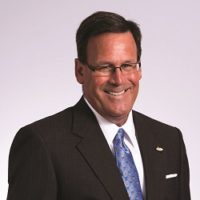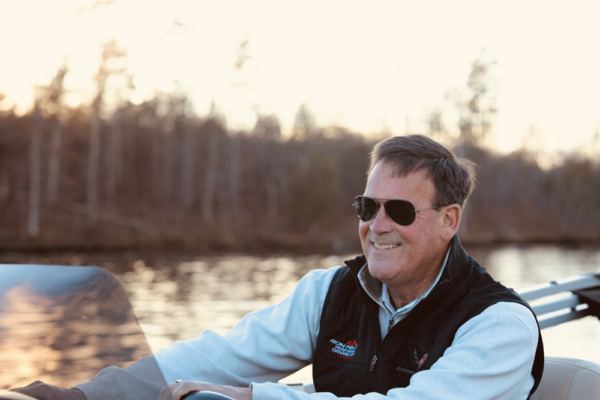Coastal Federal Credit Union ($4.6B, Raleigh, NC) has a name that might inspire thoughts of a beach retirement, but its longtime chief executive has visions of lake living on his mind as he calls it a career.

Chuck Purvis officially retired on March 31 after nearly 22 years in senior leadership at Coastal, including 11 years and nine months as president and CEO of a cooperative that quadrupled in assets and tripled in membership over the past two decades.
Purvis leaves the industry after a 41-year career that began with the North Carolina Credit Union League, then moved to corporate credit unions, and then to Coastal, a credit union that has grown to include approximately 1,800 SEGs, 25 branches, and a robust record of embracing technology. That includes a key role in developing and pioneering the deployment of interactive teller machines that now empower seven-day, 12-hour-a-day service at several of Coastal’s branches.
Purvis says he’s often asked about the name. Coastal FCU was originally IBM Coastal FCU — named for the payroll center that served Big Blue employees in that part of the country, not for its location. After all, Raleigh and the Research Triangle are 100 miles inland.
And Purvis, who’s been succeeded by Tyler Grodi, former president/CEO of EFCU Financial ($898.6M, Baton Rouge, LA), is now headed to the lake, not the coast. His family has a second home on Hyco Lake, tucked away on the North Carolina-Virginia border. They now have plans to make it their permanent residence.
Here, Purvis shares thoughts about what he’s seen and what he leaves behind.
“Ours is a national movement, and people new to executive leadership should take advantage of that. There are plenty of people ready and willing to help. Don’t try to do it all yourself.”
How has the credit union industry changed during your career?
Chuck Purvis: When I started back in the early 80s, we were still chartering new credit unions. I think there might have been 26,000 or so at the peak. It was an exciting, innovative time with new credit unions popping up all over. Now, we’re down to fewer than 5,000.
I don’t think this is a good thing. As a movement, we haven’t found a way to operationalize a model that makes it affordable for small credit unions to stay in business, and I think that’s unfortunate.
At Coastal, we didn’t use mergers as a growth strategy. We’ve been all about organically growing members and markets. Nationwide, though, the big just keep getting bigger and the small are going away.
Where do you think credit unions are headed? Why do you think this?
CP: I think we’re going to continue to see a lot fewer credit unions and those remaining getting a lot bigger. Whether those credit unions can keep the focus on members and not just on making money is the big question mark.
A big part of that is the scale that’s required to keep up with regulatory requirements, changing technology, and the people needed to do all that. I also worry a little about competition growing among credit unions. In Raleigh, our main competition is the big banks, not one another.
What advice do you have for someone assuming a leadership role in the industry today?
CP: Get to know everybody you can. The best part about being a part of this movement is how we share with one another, how we help one another learn. I can count hundreds of people in my 41 years who were colleagues, peers, and leaders in the movement who helped me keep learning new things.
Ours is a national movement, and people new to executive leadership should take advantage of that. There are plenty of people ready and willing to help. Don’t try to do it all yourself.
The Exit Interview series features parting thoughts and wisdom from influential leaders in the credit union movement upon their retirement. Read the whole series on CreditUnions.com.
Who was your most significant mentor? What would you pass on to others from that mentor?
CP: I would point to two: Larry Johnson and Joan Nelson.
Larry was North Carolina league president from the 80s until the early 2000s. I worked for him for nine years very early in my career, and he let me explore the world of credit unions and find ways to develop my talent to help our state’s cooperatives be more successful. I learned a tremendous amount from him, especially about leadership styles. He kept me between the ditches through my 20s.
Joan is a career IBMer who was my board chair the entire time I was CEO at Coastal. We had a great partnership. She helped me see so many things I otherwise might not have seen, including risks and issues. She really coached me in particular as DEI became important. Joan helped me navigate those new waters. She’s been a great friend and mentor — we made a pretty great duo.
CU QUICK FACTS
Coastal FCU
DATA AS OF 03.31.23
HQ: Raleigh, NC
ASSETS: $4.6B
BRANCHES: 25
MEMBERS: 323,493
NET WORTH: 10.3%
ROA: 0.26%
What would you like to be remembered for from your work at Coastal?
CP: This goes beyond Coastal, but I have a philosophy that the employees of a company have to come first. If you don’t treat them well, they won’t be engaged in their work. And if they don’t gravitate to the purpose of the organization, then members won’t be well served.
So, I think the best work I’ve done in my career has been in developing people. There are a number of former executives who worked for me at U.S. Central and Coastal who are now running credit unions around the country. Here at Coastal, we have high engagement scores from our staff and high net promoter scores from our members.
I translate from all this that we’ve been successful in creating the right kind of work environment for our employees, and that’s produced great results in serving our members.
How does it feel to retire? What are your plans now?
CP: It feels great. I was telling my wife how different it felt to not spend Sunday evening prepping for the week ahead; doing things like making sure my schedule is set, that I’m focused on what I need to do this week. For the first time in 41 years, I didn’t have to do that yesterday.
As for right now, we have two sons and three grandsons, and we plan to be more spontaneous about seeing them. We also plan to expand our lake house and hopefully move there permanently in a few years. Our family loves to boat and ski and watersports in general; we look forward to being there and doing that more.
We also plan to travel more, since we haven’t done that much since COVID.

What’s left on your bucket list?
CP: Travel and golf. This year we’re going to the Masters in Augusta and to the Ryder Cup in Rome, and my wife wants to go to the Kentucky Derby. We have been to 48 states, but many of those were on business trips and there’s never enough time to see what we really want to see. So we’re going to take a month or two out west this year and tour the national parks. That’s the beauty of retirement. You just have to make the arrangements. You don’t have to fit it into a work schedule.
What are your final words to the credit union industry?
CP: Consumers need credit unions today more than ever in the past. We’re their trusted partners, and now we have the data and technology to know them and their lifecycle needs better than ever. That’s great, but it also means we have to work harder to help them navigate the new world of financial products and services. If we focus on improving the financial lives of consumers in that way, we’re going to be successful.
This interview has been edited and condensed.
Do You Have 90 Minutes To Talk Strategy?
Learn More
